Provide remote or mobile services

Provide remote or mobile services
Case Studies
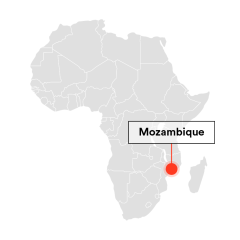
Mozambique is a large country, where over 60 percent of the population lives in rural areas, far from the nearest health facility. Mobile clinics offer clinical screening, treatment, information and referral for GBV cases, especially sexual violence, as well as broader reproductive health and general health services. This setup makes it easier for survivors of violence to approach the mobile clinics, without feeling ashamed or that the reason for the visit will be obvious to others. The mobile clinics bring together medical and drug assistance, sexual and reproductive health services, and support for gender-based violence, reaching communities that are hard to access.
The team of the mobile clinics is comprised of a driver, maternal and child health nurses, a medical agent or medical technician, psychologist or psychiatry technician, a preventive medicine agent, and a social worker. They provide post-exposure prophylaxis for HIV and sexually transmitted infections (STIs) and contraception, with referral of cases of sexual violence to a local health facility for follow-up. The mobile clinics also offer counselling about birth control and contraceptives, as well as testing for HIV, malaria, STIs and tuberculosis. In addition, they screen for chronic diseases such as cervical cancer and high blood pressure and measure blood glucose levels and body mass index.
Results: During 2020, Spotlight Initiative provided six mobile clinics – two in each programme province (Gaza, Manica and Nampula). The six clinics were able to conduct 136 outreach interventions, reaching a total of 19,840 community members in three provinces of Mozambique, and helping to register a total of 354 cases of violence against women and girls.
Opportunities for scale-up: This model can be expanded into more provinces, and by other implementation partners who work on Sexual and Reproductive Health and Gender-Based Violence. In the future, these mobile health clinics could also provide integrated care for cases of GBV, including referrals to legal aid services.
Responding to Emergencies: In response to the 2021 cyclone in Mozambique, Spotlight Initiative created WhatsApp groups and provided mobile data to at-risk women and girls to facilitate their reporting of cases of violence and enable them to access frontline services. Another coping strategy in light of COVID-19 was supplying remote IT working equipment and airtime to district health services and implementing partners, including cell phones and vehicles. This allowed for the provision of remote psychosocial assistance to women and girls at risk of or experiencing violence, using specialised staff from provincial and district authorities and youth associations.
Video - Leave No One Behind Documentary: In "Leave No One Behind", a two-part documentary, we learn about the impact that services provided by Care Centres and Mobile Clinics have on the health and lives of Mozambican women and girls, through the voice of those who provide and receive these services.
Part 1- Rescue: The mobile clinics reaching Mozambique’s most isolated survivors of gender-based violence. In "Rescue", hit the road with the dedicated women and men who travel the country providing life-giving care.
Part 2- Survive: Breaking the cycle of violence against women and girls in Mozambique. In "Survive", listen to Josefina and Ivone's stories, two of the thousands of women living in remote parts of Mozambique who received life-saving care from Spotlight Initiative.


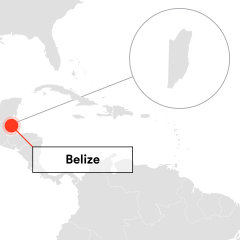
In Belize, Spotlight Initiative introduced 'mobile women's centres' in coordination with civil society organisations. The centres' success depends on the meaningful engagement of these groups, who promoted local ownership and trust with communities.
“[The centre is] a great help to women like me. We can get services by visiting the nurse or advice on legal matters which we often don’t get because it comes with a cost. I know the counselling helps so many women here. They feel good being able to talk to someone and get the advice they need. It gives me hope to push forward despite my problems - it gave me strength.” – Domitilla Noh, who lives in a small village in Belize and accessed healthcare during the COVID-19 pandemic through a Spotlight Initiative-supported mobile women’s centre.
Results: In 2020 alone, the first six mobile women’s centres provided holistic care and support to almost 400 women and girls in the southern and northern regions of the country.
Opportunities for sustainability: Building on this, in 2021 the programme developed a sustainability strategy as a Standard Operating Procedures (SOPs) for mobile service delivery.


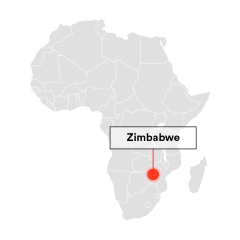
In December 2019, Spotlight Initiative established a fleet of Mobile One Stop Centres across Zimbabwe, which aimed to dismantle the barriers that survivors in remote and hard to reach areas faced in accessing GBV response services. As part of this, they supported volunteers engaged in GBV referrals by providing them with data and airtime packages to enable continuous two-way communication between volunteers, survivors, hotlines, and Mobile One Stop Centre teams. They also coordinated shuttle services and fuel for survivors who needed to reach the centres.
Results and feedback from survivors and service providers: In 2022, a total of 5,862 survivors had accessed GBV services through the Mobile One Stop Centres across 12 target districts, 78% of whom were women. Survivors who had accessed these services responded positively to the Mobile One Stop Centres, explaining that these centres had helped eliminate the challenges they faced to reaching static provincial and district-based services. Community volunteers working to raise awareness of GBV and refer survivors to services also celebrated the introduction of Mobile One Stop Centres, explaining that they had significantly improved their capacity to conduct outreach and refer survivors to services.
Opportunities for scale-up: In Spotlight Initiative’s experience, the Mobile One Stop Centre approach is highly versatile and can be adapted to respond to changing contexts. For example, teams can modify the type of service provided (direct services or referrals to higher levels of care), they can change the location and frequency of visits, and they can coordinate with other mobile services in development and humanitarian contexts. This coordination could include vaccination campaigns, food distribution, WASH sensitisation points, and mobile health clinics.
Opportunities for sustainability: By engaging with the Government of Zimbabwe during the design and rollout of the Mobile One Stop Centres, Spotlight Initiative was able to generate Government buy-in which contributed to the effectiveness of the model and also enhanced opportunities for sustainability. These centres are also run by nurses seconded from district hospitals, local police officers from specialised survivor units, and legal support officers from Zimbabwe. By engaging existing service providers from the local areas, rather than individuals from different locations, these Mobile One Stop Centres are well placed to retain staff.



Mozambique has lacked a dedicated hotline to respond to the needs of persons at risk of or survivors of gender-based violence. The one existing service, Fala Criança, had been set up to respond to the needs of children who suffered abuse, but was not available to those over 18.
“Linha Verde 1458 will offer a fast and safe response to women who suffer violence during COVID-19. It is a source of pride for me, as well as my co-workers, to know that we are helping those who do not know where to go, especially during this period of COVID-19.” - Telephone operator at Linha Verde 1458.
To fill this gap, Spotlight Initiative teamed up with Linha Verde 1458, a free, inter-agency humanitarian assistance hotline that had been established during the response to Cyclones Idai and Kenneth in 2019. Working in the context of COVID-19 by providing remote training, the Initiative expanded hotline capacity by equipping 317 health and social service professionals and emergency hotline operators from Linha Verde 1458 and a new COVID-19 hotline on how to respond to gender-based violence concerns, guide complaints and refer clients to services.


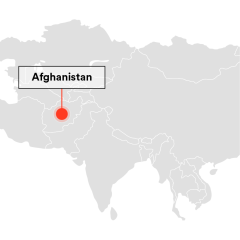
The Spotlight Initiative programme in Afghanistan has fostered innovation, laying the groundwork for innovative practices and activities. These include an online civil society platform, which will promote knowledge and information sharing among members of the Eliminating Violence Against Women Forum, and a technology-based solution to real-time monitoring needs called RapidPro / U-Report.
The U-Report is an innovative way to facilitate two-way communication via phones and social media platforms, such as WhatsApp and Viber, to monitor and course-correct programming. Other innovative practices will include mobile teams which will provide emergency essential support, referrals and information to survivors of gender-based violence and harmful practices, particularly those most marginalised - and intergenerational dialogues and mentoring of women, which will support young women’s engagement in the women’s movement and bridge the gap between big organisations and grassroots organisations.


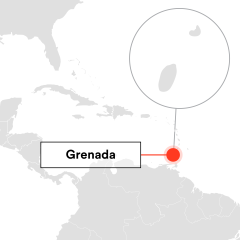
During the COVID-19 lockdown, Spotlight Initiative tested approaches to working virtually to continue to address violence effectively. Helpline responders and counsellors learned to provide more psychosocial counselling and referral guidance by phone. Key staff from first responders and frontline agencies were trained in using remote means of communication as part of crisis management. The Gender-Based Violence Unit in the Division of Gender and Family Affairs of the Ministry of Social Development, Housing and Community Empowerment developed a COVID-19 response protocol with guidelines for responders and case managers, including phone and remote contact systems, and personal protective equipment for face-to-face services to victims and survivors.
“We consider this issue of VAWG to be so crucial because of its impact on all aspects of our lives, and we pay a heavy price socially and economically. Grenada recognises that gender equality is required if we want to live in a state where there is harmony and progress for everyone.” - Dr The Honourable Keith Mitchell, Prime Minister, Government of Grenada (at the Launch of Spotlight Initiative on March 5, 2020).
Spotlight Initiative plans to build on these early efforts. For example, they want to use online counselling to increase the accessibility of services, using digital and mobile technology, especially after COVID-19. These efforts are expected to help bridge the gaps in services and information across the islands and rural areas of Grenada.







